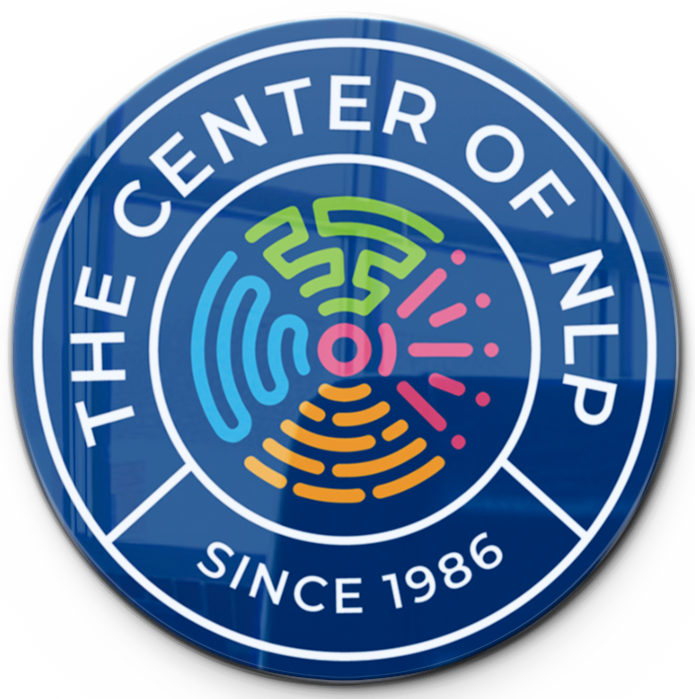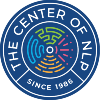CONTACT US info@centerofnlp.com

What is NLP Speaker Mastery? Check Out its Power and Potential
Neuro-Linguistic Programming (NLP) has long intrigued individuals across various professions due to its profound impact on communication and personal development. In the realm of public speaking, mastering NLP can be a game-changer. This comprehensive exploration into NLP speaker mastery will unveil how it is your speaking abilities, to ensure your messages aren't just heard but are influential and transformative.
Learning about NLP and how it works
At its core, NLP involves utilizing the psychological mechanisms that underlie human communication and behavior. Developed in the 1970s by Richard Bandler and John Grinder, NLP synthesizes insights from linguistics and psychotherapy to create a unique approach to communication and personal development.
NLP is predicated on the belief that our words, body language, and thought patterns are deeply interconnected. By modifying how we use these elements, we can alter our thinking and behavior. This is particularly vital in public speaking, where effective communication is the cornerstone.
The Pillars of NLP Speaker Mastery

1. Rapport Building
Building rapport with your audience is the first step towards effective speaking. NLP techniques emphasize mirroring body language, tone, and speech patterns to create a sense of alignment and trust. This doesn't mean mimicking but subtly matching your audience's energy and posture to make them more receptive to your message.
2. Sensory Acuity
A skilled NLP speaker is highly observant of their audience’s reactions. Sensory acuity involves noticing slight changes in the audience's body language, facial expressions, and verbal cues. This feedback is crucial for adjusting your delivery in real time, ensuring your message resonates well and retains audience engagement.
3. Precision in Language
Language precision is another cornerstone of NLP. The Meta Model, a key component of NLP, provides a framework for using language that is clear, specific, and devoid of generalizations. This helps in conveying your ideas more succinctly and persuasively, making your speeches more impactful.
4. Artful Vagueness
Contrary to precision, the Milton Model (named after Milton Erickson) teaches the use of vague and metaphorical language to speak to the subconscious mind. This is useful in motivational speaking, where you aim to inspire broad audiences with diverse backgrounds and needs.
5. Anchoring
Anchoring involves creating a stimulus-response pattern that you can trigger at will. For speakers, this might mean associating a particular gesture or phrase with a specific emotional response from your audience. When used effectively, anchors can evoke emotions like enthusiasm, calm, or confidence, enhancing the impact of your speech.
Practical Applications of NLP in Public Speaking

Implementing NLP in public speaking is about using specific techniques and adopting a mindset focused on continuous improvement and empathy. Here’s how you can apply these principles in practical scenarios:
Preparation and Practice: Before any speaking engagement, practice your speech focusing on the NLP techniques you plan to employ. Record yourself to observe your language and body language and adjust accordingly.
Audience Analysis: Understand the demographic and psychographic characteristics of your audience. Tailor your NLP strategies to match these traits to maximize engagement and impact.
Feedback and Flexibility: Post-presentation, seek feedback not just on the content but on your delivery. Be open to making adjustments based on this feedback to refine your NLP skills further.
Challenges and Considerations

While NLP offers powerful tools for speakers, it's essential to approach it with ethical considerations in mind. Use NLP to communicate, not to manipulate or coerce. Additionally, NLP requires practice and sensitivity to master, particularly in multicultural settings where body language and communication norms can vary widely.
Interested in diving deeper into the world of NLP? Join our explosive webinar to see how NLP techniques can transfer your public speaking skills.
The Role of Meta and Milton Models in NLP
The Meta and Milton Models are foundational to NLP, offering distinct approaches to using language effectively in public speaking. Implementing these models can dramatically how speakers connect with and influence their audience.
The Meta Model: Clarity and Detail
Encourages specific, concrete language
Challenges vague statements and generalizations
Helps clarify thoughts for clearer communication
Useful for educational and directive speaking
The Milton Model: Persuasion through Ambiguity
Utilizes vague and metaphorical language
Engages the listener's imagination and subconscious
Ideal for motivational and inspirational speeches
Allows listeners to personalize the message
Mastering Sensory Acuity and rapport-building
To truly resonate with an audience, NLP speakers must develop sensory acuity and rapport-building skills. These skills ensure that a speaker can adjust their message based on real-time audience feedback and create a connection that communication efficacy.
Sensory Acuity: Observing Subtle Cues
Focuses on detecting minor changes in audience behavior
The ability to adapt speeches dynamically
Crucial for maintaining audience engagement
Rapport Building: Establishing Connection
Involves mirroring physical and verbal cues subtly
Builds trust and openness between speaker and audience
Essential for persuasive and impactful speaking
This can be achieved through matching tone, tempo, and body language
To Sum Up!
NLP speaker mastery isn't just about learning techniques; it's about fostering a deeper connection with your audience and delivering your message in the most effective way possible. Whether you are a novice speaker or a seasoned orator, integrating NLP into your public speaking toolkit can provide a significant advantage in how you communicate, persuade, and influence your audience.
A new dimension in public speaking becomes available when one learns and applies the concepts of neuro-linguistic programming (NLP). This opens the door to improved communication and the possibility of making a significant impression on one's audience.
Ready to take your speaking skills to the next level with NLP?
Check out our comprehensive guide on NLP Speaker Mastery and start your journey toward becoming a more persuasive and impactful speaker today!
Check Out For more:
10 Powerful NLP Techniques to Improve Your Communication Skills
Unlock Your Potential with Neuro-Linguistic Programming Techniques
Explore Neuro-Linguistic Programming (NLP) Techniques and Principles
Mastering Neuro-Linguistic Programming: Techniques and Principles
Copyright 1989 - 2024 | The Center of NLP © | All Rights Reserved

